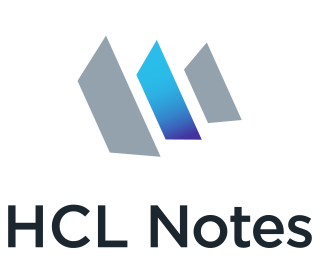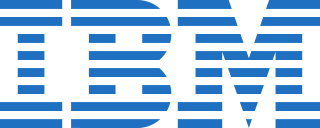Lotus Mashups is a business mashups editor developed and distributed by IBM as part of the IBM Mashup Center system. Lotus Mashups is intended for use in professional environments, such as corporations and governments.
Lotus Mashups is a business mashups editor developed and distributed by IBM as part of the IBM Mashup Center system. Lotus Mashups is intended for use in professional environments, such as corporations and governments.
Lotus Mashups is a self-contained web application, requiring no external software to develop mashup applications. Mashups uses the Dojo framework for Web 2.0 functionality.
Lotus Mashups has the ability to integrate portlets into mashup projects. This is accomplished either by importing a portlet from a connected Websphere Portal server, or by uploading a .WAR file.
In an effort to thwart unauthorized access of sensitive data by externally created widgets, all widgets are self-contained and isolated, unable to pass code back and forth unless specifically enabled by the mashup author.
The data and administration counterpart of Lotus Mashups, InfoSphere MashupHub is utilized for the following tasks:
Although Lotus Greenhouse allows users to use Lotus Mashups free of charge, [1] purchase of IBM Mashup Center is required for private collaboration. Consequently, the consumer market would likely find Lotus Mashups to be cost-prohibitive. [2]
A web portal is a specially designed website that brings information from diverse sources, like emails, online forums and search engines, together in a uniform way. Usually, each information source gets its dedicated area on the page for displaying information ; often, the user can configure which ones to display. Variants of portals include mashups and intranet dashboards for executives and managers. The extent to which content is displayed in a "uniform way" may depend on the intended user and the intended purpose, as well as the diversity of the content. Very often design emphasis is on a certain "metaphor" for configuring and customizing the presentation of the content and the chosen implementation framework or code libraries. In addition, the role of the user in an organization may determine which content can be added to the portal or deleted from the portal configuration.

HCL Notes is a proprietary collaborative software platform for Unix, Windows, Linux and macOS, sold by HCLTech. The client application is called Notes while the server component is branded HCL Domino.
Lotus Software was an American software company based in Massachusetts; it was "offloaded" to India's HCL Technologies in 2018.
Portlets are pluggable user interface software components that are managed and displayed in a web portal. A portlet responds to requests from a web client with and generates dynamic content. A portlet is managed by a portlet container.

The Standard Widget Toolkit (SWT) is a graphical widget toolkit for use with the Java platform. It was originally developed by Stephen Northover at IBM and is now maintained by the Eclipse Foundation in tandem with the Eclipse IDE. It is an alternative to the Abstract Window Toolkit (AWT) and Swing Java graphical user interface (GUI) toolkits provided by Sun Microsystems as part of the Java Platform, Standard Edition (J2SE).
Software as a service is a software licensing and delivery model in which software is licensed on a subscription basis and is centrally hosted. SaaS is also known as on-demand software, web-based software, or web-hosted software.
A Java Portlet Specification defines a contract between portlets and their containers; they provides a convenient programming model for Java portlet developers. It is defined through various Java Specification Requests (JSRs).
IBM Workplace is a discontinued a brand of collaborative software applications from IBM's Lotus Software division. It was intended to be the next generation of collaboration software that would work with IBM's Java EE-based WebSphere Portal server software. Introduced in 2003, the brand was largely disbanded by 2007, with its core technologies and many of its products rebranded as Lotus or WebSphere.
A mashup, in web development, is a web page or web application that uses content from more than one source to create a single new service displayed in a single graphical interface. For example, a user could combine the addresses and photographs of their library branches with a Google map to create a map mashup. The term implies easy, fast integration, frequently using open application programming interfaces and data sources to produce enriched results that were not necessarily the original reason for producing the raw source data. The term mashup originally comes from creating something by combining elements from two or more sources.
Plumtree Software is a former software company founded in 1996 by product managers and engineers from Oracle and Informix with funding from Sequoia Capital. The company was a pioneer of extending the portal concept popularized by Yahoo! from the web to enterprise computing. BEA Systems acquired Plumtree on October 20, 2005, and Oracle subsequently acquired BEA. Plumtree's former portal product continues as part of Oracle's product line.
The OpenAjax Alliance is an industry group dedicated to the set of technologies and web programming techniques known as Ajax.
IBM Lotus QuickPlace is a proprietary Web-based collaborative software application distributed by the Lotus Software division of IBM. Lotus QuickPlace is a self-service Web tool that provides non-technical professionals the ability to easily create a browser-accessible workspace to support a task, project, or initiative. QuickPlace also integrates with IBM Lotus Sametime providing presence awareness of other users online and available for conferencing.
An enterprise portal, also known as an enterprise information portal (EIP), is a framework for integrating information, people and processes across organizational boundaries in a manner similar to the more general web portals. Enterprise portals provide a secure unified access point, often in the form of a web-based user interface, and are designed to aggregate and personalize information through application-specific portlets.
A web widget is a web page or web application that is embedded as an element of a host web page but which is substantially independent of the host page, having limited or no interaction with the host. A web widget commonly provides users of the host page access to resources from another web site, content that the host page may be prevented from accessing itself by the browser's same-origin policy or the content provider's CORS policy. That content includes advertising, sponsored external links (Taboola), user comments (Disqus), social media buttons, news, and weather (AccuWeather). Some web widgets though serve as user-selectable customizations of the host page itself.
HCL Connections is a Web 2.0 enterprise social software application developed originally by IBM and acquired by HCL Technologies in July 2019. Connections is an enterprise-collaboration platform which aims to helps teams work more efficiently. Connections is part of HCL collaboration suite which also includes Notes / Domino, Sametime, Portal and Connections.

WaveMaker is a Java-based low-code development platform designed for building software applications and platforms. The company, WaveMaker Inc., is based in Mountain View, California. The platform is intended to assist enterprises in speeding up their application development and IT modernization initiatives through low-code capabilities. Additionally, for independent software vendors (ISVs), WaveMaker serves as a customizable low-code component that seamlessly integrates into their products.
WebSphere Portal is an enterprise software used to build and manage web portals. It provides access to web content and applications, while delivering personalized experiences for users.
ZK is an open-source Ajax Web application framework, written in Java, that enables creation of graphical user interfaces for Web applications with little required programming knowledge.
The IBM Mashup Center is an end-to-end enterprise mashup platform that enables the rapid creation, sharing, and discovery of reusable application building blocks that can be easily assembled into new applications or leveraged within existing applications.

IBM Cognos Analytics with Watson is a web-based integrated business intelligence suite by IBM. It provides a toolset for reporting, analytics, scorecarding, and monitoring of events and metrics. The software consists of several components designed to meet the different information requirements in a company. IBM Cognos Analytics has components such as IBM Cognos Framework Manager, IBM Cognos Cube Designer, IBM Cognos Transformer.